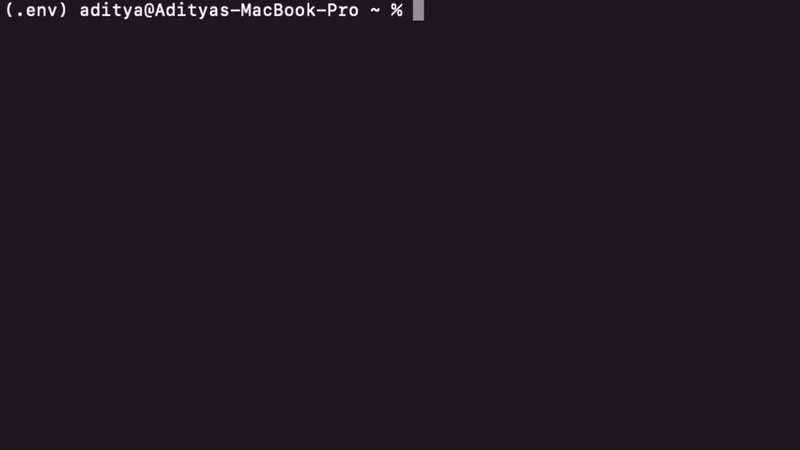Ecosyste.ms: Awesome
An open API service indexing awesome lists of open source software.
https://github.com/tokern/piicatcher
Scan databases and data warehouses for PII data. Tag tables and columns in data catalogs like Amundsen and Datahub
https://github.com/tokern/piicatcher
aws-athena aws-glue aws-redshift catalog data data-catalog database phi pii python snowflake
Last synced: 3 months ago
JSON representation
Scan databases and data warehouses for PII data. Tag tables and columns in data catalogs like Amundsen and Datahub
- Host: GitHub
- URL: https://github.com/tokern/piicatcher
- Owner: tokern
- License: apache-2.0
- Created: 2019-03-21T11:03:02.000Z (over 5 years ago)
- Default Branch: master
- Last Pushed: 2024-01-05T17:37:23.000Z (6 months ago)
- Last Synced: 2024-02-27T16:46:24.354Z (4 months ago)
- Topics: aws-athena, aws-glue, aws-redshift, catalog, data, data-catalog, database, phi, pii, python, snowflake
- Language: Python
- Homepage: https://tokern.io/piicatcher/
- Size: 1.38 MB
- Stars: 236
- Watchers: 13
- Forks: 87
- Open Issues: 19
-
Metadata Files:
- Readme: README.md
- License: LICENSE
Lists
- awesome-pii - PII Catcher
- awesome-privacy-engineering - PII Catcher - Scan databases and data warehouses for PII data. Tag tables and columns in data catalogs like Amundsen and Datahub. (Awesome Privacy Engineering [](https://awesome.re) / Data Deletion, Data Mapping, and Data Subject Access Requests)
README
[](https://github.com/tokern/piicatcher/actions/workflows/ci.yml)
[](https://pypi.python.org/pypi/piicatcher)
[](https://pypi.org/project/piicatcher/)
[](https://pypi.org/project/piicatcher/)
[](https://hub.docker.com/r/tokern/piicatcher)
# PII Catcher for Databases and Data Warehouses
## Overview
PIICatcher is a scanner for PII and PHI information. It finds PII data in your databases and file systems
and tracks critical data. PIICatcher uses two techniques to detect PII:
* Match regular expressions with column names
* Match regular expressions and using NLP libraries to match sample data in columns.
Read more in the [blog post](https://tokern.io/blog/scan-pii-data-warehouse/) on both these strategies.
PIICatcher is *batteries-included* with a growing set of plugins to scan column metadata as well as metadata.
For example, [piicatcher_spacy](https://github.com/tokern/piicatcher_spacy) uses [Spacy](https://spacy.io) to detect
PII in column data.
PIICatcher supports incremental scans and will only scan new or not-yet scanned columns. Incremental scans allow easy
scheduling of scans. It also provides powerful options to include or exclude schema and tables to manage compute resources.
There are ingestion functions for both [Datahub](https://datahubproject.io) and [Amundsen](https://amundsen.io) which will tag columns
and tables with PII and the type of PII tags.

## Resources
* [AWS Glue & Lake Formation Privilege Analyzer](https://tokern.io/blog/lake-glue-access-analyzer/) for an example of how piicatcher is used in production.
* [Two strategies to scan data warehouses](https://tokern.io/blog/scan-pii-data-warehouse/)
## Quick Start
PIICatcher is available as a docker image or command-line application.
### Installation
Docker:
alias piicatcher='docker run -v ${HOME}/.config/tokern:/config -u $(id -u ${USER}):$(id -g ${USER}) -it --add-host=host.docker.internal:host-gateway tokern/piicatcher:latest'
Pypi:
# Install development libraries for compiling dependencies.
# On Amazon Linux
sudo yum install mysql-devel gcc gcc-devel python-devel
python3 -m venv .env
source .env/bin/activate
pip install piicatcher
# Install Spacy plugin
pip install piicatcher_spacy
### Command Line Usage
# add a sqlite source
piicatcher catalog add-sqlite --name sqldb --path '/db/sqldb/test.db'
# run piicatcher on a sqlite db and print report to console
piicatcher detect --source-name sqldb
╭─────────────┬─────────────┬─────────────┬─────────────╮
│ schema │ table │ column │ has_pii │
├─────────────┼─────────────┼─────────────┼─────────────┤
│ main │ full_pii │ a │ 1 │
│ main │ full_pii │ b │ 1 │
│ main │ no_pii │ a │ 0 │
│ main │ no_pii │ b │ 0 │
│ main │ partial_pii │ a │ 1 │
│ main │ partial_pii │ b │ 0 │
╰─────────────┴─────────────┴─────────────┴─────────────╯
### API Usage
Code Snippet:
```python3
from dbcat.api import open_catalog, add_postgresql_source
from piicatcher.api import scan_database
# PIICatcher uses a catalog to store its state.
# The easiest option is to use a sqlite memory database.
# For production usage check, https://tokern.io/docs/data-catalog
catalog = open_catalog(app_dir='/tmp/.config/piicatcher', path=':memory:', secret='my_secret')
with catalog.managed_session:
# Add a postgresql source
source = add_postgresql_source(catalog=catalog, name="pg_db", uri="127.0.0.1", username="piiuser",
password="p11secret", database="piidb")
output = scan_database(catalog=catalog, source=source)
print(output)
# Example Output
[
['public', 'sample', 'gender', 'PiiTypes.GENDER'],
['public', 'sample', 'maiden_name', 'PiiTypes.PERSON'],
['public', 'sample', 'lname', 'PiiTypes.PERSON'],
['public', 'sample', 'fname', 'PiiTypes.PERSON'],
['public', 'sample', 'address', 'PiiTypes.ADDRESS'],
['public', 'sample', 'city', 'PiiTypes.ADDRESS'],
['public', 'sample', 'state', 'PiiTypes.ADDRESS'],
['public', 'sample', 'email', 'PiiTypes.EMAIL']
]
```
## Plugins
PIICatcher can be extended by creating new detectors. PIICatcher supports two scanning techniques:
* Metadata
* Data
Plugins can be created for either of these two techniques. Plugins are then registered using an API or using
[Python Entry Points](https://packaging.python.org/en/latest/specifications/entry-points/).
To create a new detector, simply create a new class that inherits from [`MetadataDetector`](https://github.com/tokern/piicatcher/blob/master/piicatcher/detectors.py)
or [`DatumDetector`](https://github.com/tokern/piicatcher/blob/master/piicatcher/detectors.py).
In the new class, define a function `detect` that will return a [`PIIType`](https://github.com/tokern/dbcat/blob/main/dbcat/catalog/pii_types.py)
If you are detecting a new PII type, then you can define a new class that inherits from PIIType.
For detailed documentation, check [piicatcher plugin docs](https://tokern.io/docs/piicatcher/detectors/plugins).
## Supported Databases
PIICatcher supports the following databases:
1. **Sqlite3** v3.24.0 or greater
2. **MySQL** 5.6 or greater
3. **PostgreSQL** 9.4 or greater
4. **AWS Redshift**
5. **AWS Athena**
6. **Snowflake**
7. **BigQuery**
## Documentation
For advanced usage refer documentation [PIICatcher Documentation](https://tokern.io/docs/piicatcher).
## Survey
Please take this [survey](https://forms.gle/Ns6QSNvfj3Pr2s9s6) if you are a user or considering using PIICatcher.
The responses will help to prioritize improvements to the project.
## Stats Collection
We use cookies to a analyse our traffic and features usage.
We may share information about your use of our product for our social media and marketing purposes.
These cookies don't collect your sensitive and/or confidential information.
If you would like to opt out of these cookies, run
```bash
piicatcher --disable-stats
```
To Enable:
```bash
piicatcher --enable-stats
```
## Contributing
For Contribution guidelines, [PIICatcher Developer documentation](https://tokern.io/docs/piicatcher/development).